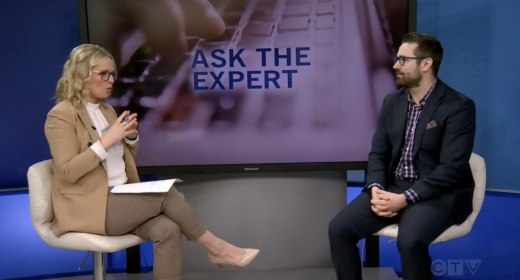What to understand about reverse mortgages
A high percentage of seniors own their own homes free and clear and are therefore sitting on a significant amount of equity. Some of these seniors are also in need of money to fund their rising health care and prescription drug costs and other living expenses. In order to cover these rising costs, some seniors are considering leveraging the equity in their homes by taking out reverse mortgages. If you are considering taking out a reverse mortgage, it is important to ensure that you understand fully how it works and that you weight the advantages and risks.
How It Works
A reverse mortgage is a loan that is available to homeowners 60 years of age or older. If you have a spouse or other co-owner, the age requirement applies to both of you. A reverse mortgage is an advance of money provided by a lender that is secured by the existing debt-free equity that you have in your home. The amount of the loan provided under a reverse mortgage is usually up to 40 per cent of the current value of your home. The amount you can borrow depends on your age, the current interest rate and the value of your home. Generally, the older you are, the larger the loan you will be able to receive. If there are existing outstanding loans secured by your home at the time your reverse mortgage funds are advanced, you may first be required to use these funds to pay off those existing debts.
Traditional mortgage vs. reverse mortgage
With a traditional mortgage or secured line of credit, you must have an adequate income verses debt ratio in order to qualify for the loan. Traditional mortgages also require that the borrower make regular bi-weekly or monthly payments. A reverse mortgage is different in that it pays you and is available to you regardless of your current income. With a reverse mortgage, the interest on your loan accumulates and the equity that you have in your home decreases over time. The accumulated debt is not required to be paid off until such time as you die, sell your home or it is no longer your principal residence. However, you are still required to continue paying your property taxes, insurance, utilities and other costs associated with maintaining your home.
Advantages vs. pitfalls
Reverse mortgages have the following advantages:
- You are not required to make regular payments;
- You can receive cash for the value of your home without having to sell it.
- The money is a tax-free source of income (unless the money is used to invest and produce income, in which case some or all of that income would be taxable).
- The money received under a reverse mortgage does not affect Old Age Security (OAS) or Guaranteed Income Supplement (GIS) benefits.
- You can determine the manner in which you receive your reverse mortgage funds. For example, you may receive a lump-sum of cash, regular advances or a combination of both.
The disadvantages associated with taking out a reverse mortgage include:
- Reverse mortgages are subject to higher interest rates than other types of mortgages and loans.
- The equity in your home will decrease over the years as the interest on your reverse mortgage accumulates.
- There are significant fees associated with initiating a reverse mortgage, including an application fee, a home appraisal fee and legal fees. Homeowners may also be required to take out mortgage insurance.
- You may be charged a repayment penalty for selling your home or moving out within three years of obtaining a reverse mortgage.
- Upon your death, your estate will be required to repay the accumulated debt within a certain period of time. However, the time required to deal with the estate may exceed the time permitted to repay the debt, which could cause problems for your estate.
- Since the loan and interest will need to be repaid upon your death, there will be less money in your estate to leave to your children or other beneficiaries. In many cases, repayment is made by selling the home and then turning over the proceeds (or a portion of them) to the bank.
As a possible way of getting around having to sell the family home upon the death of the homeowner, some families will take out an insurance policy on the homeowner and then make the lending institution the beneficiary. Using this strategy, the bank may be repaid without having to sell the home upon the homeowner's death. Those interested in this strategy are encouraged to consult with a qualified insurance agent to determine the best way to ensure that proceeds from such a policy are sufficient to satisfy the outstanding loan.
Alternatives
If you are concerned about the disadvantages associated with choosing a reverse mortgage, you may wish to consider these alternative options:
- Selling or renting your current home. Moving to a less expensive home is a good way to protect your assets for yourself and your family.
- Using your equity to secure a different type of loan with a lower interest rate – for example, a secured line of credit.
- Seeking legal advice about the possibility of selling or transferring your home to a trusted family member on the condition that you have the right to continue living there for the remainder of your life or until such time as it is necessary for you to move to an assisted-living facility.
Reverse mortgages can be a valuable option for a select group of people, in particular, those who are house-rich but cash-poor. If you are considering a reverse mortgage, make sure you do your homework. This includes discussing your reverse mortgage plans with your legal and financial advisors and your family. A person's home is often their most valuable asset and this is a decision not to be made lightly. All aspects of a reverse mortgage must be taken into consideration before knowing whether it is right for you.
Author: June Wright, © Nelligan O’Brien Payne LLP 2010
[This article was originally published in the October 2010 issue of Fifty-Five Plus Magazine.]


